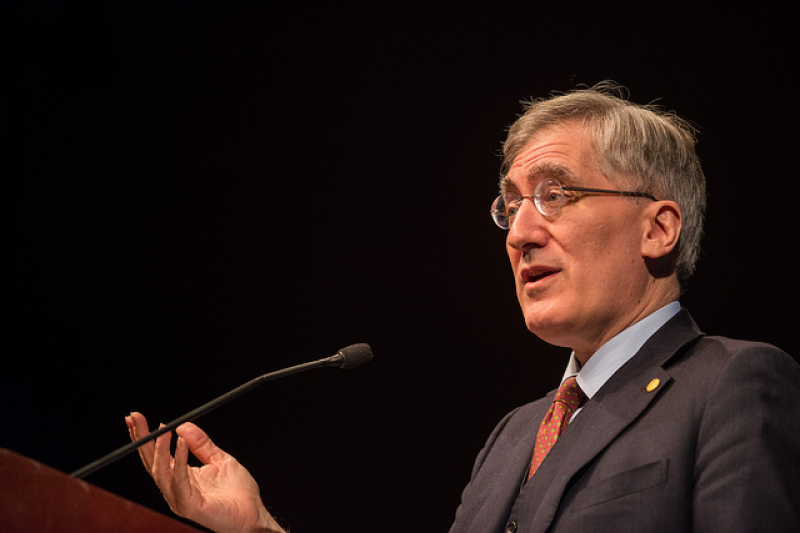
The cause of religious freedom has suffered over the last several years, according to the 2016 annual report released on Monday by the United States Commission on International Religious Freedom (USCIRF).
It referred to the mass displacements triggered by ISIS persecution of Christians and minorities in the Middle East, acts of bigotry against Jews and Muslims in Europe, imprisonment of Christian lawyers and pastors in China who protested against crackdown on churches and crosses, among several other "serious and sustained assault(s)," on freedom of religion all over the world.
"Regrettably, the situation is that things have not improved, and in some places things have gotten worse," said Robert P. George, who chairs the commission.
The report cited over 30 countries, where the religious freedom norms were being flouted, and listed "countries of particular concern" where the "governments either engaged in or tolerated 'particularly severe' violations of religious freedom."
The countries of particular concern (CPC) included Myanmar, China, Eritrea, Iran, North Korea, Saudi Arabia, Sudan, Turkmenistan, and Uzbekistan.
USCIRF did not rank the nations on the level of abuses committed against religious groups, but George told The Washington Times that North Korea was "one of the worst offending nations, if not the worst offending nation in the world."
According to the report, the North Korean regime gives no precedence to religious freedom, and continues to severely persecute those who practice religion.
"They arrest, torture and even execute those who are secretly engaged in religious activities," USCIRF said.
Since 2014, the Chinese government conspicuously took steps to suppress religious freedom in its efforts to maintain communal order based on socialism. Most of the persecution was directed towards Christian groups, as they sought to put pastors and Christian lawyers behind bars for protesting against government campaign of razing churches and taking down crosses.
"The incarceration of prisoners of conscience - people whom governments hold for reasons including those related to religion - remains astonishingly widespread, occurring in country after country, and underscores the impact of the laws and policies that led to their imprisonment," the report states.
Meanwhile, USCIRF said that religious freedom in India was on a "negative trajectory" since last year.
"In 2015, religious tolerance deteriorated and religious freedom violations increased in India," the report noted, alluding to rising instances of violence reported against the minorities.
Last year, the USCIRF panel had wanted to come to India to assess the religious freedom situation in the country, but was denied visas by the Indian government on the grounds that a foreign third party had no standing to investigate religious freedom.
The USCIRF has asked the Indian government to hold officials and religious leaders accountable who violate religious freedom.
"Minority communities, especially Christians, Muslims, and Sikhs, experienced numerous incidents of intimidation, harassment, and violence, largely at the hands of Hindu nationalist groups," the report alleged.
In Eritrea, about 3,000 people are imprisoned for their faith and receive harsh punishment at the hands of the state.
Pakistan, one of the countries on CPC, has the highest number of people on death row or life sentence for blasphemy.
Pakistan's "Religiously-discriminatory constitutional provisions and legislation, such as the country's blasphemy law and anti-Ahmadiyya laws intrinsically violate international standards of freedom of religion or belief and result in prosecutions and imprisonments," the report said.
The commission asked the world leaders to end the abuses rampant in different parts of the world.
There is "a continued gap between rhetoric of the regime and the situation on the ground... While we welcome the rhetoric, rhetoric doesn't really matter unless it's accompanied by action," George said.

















